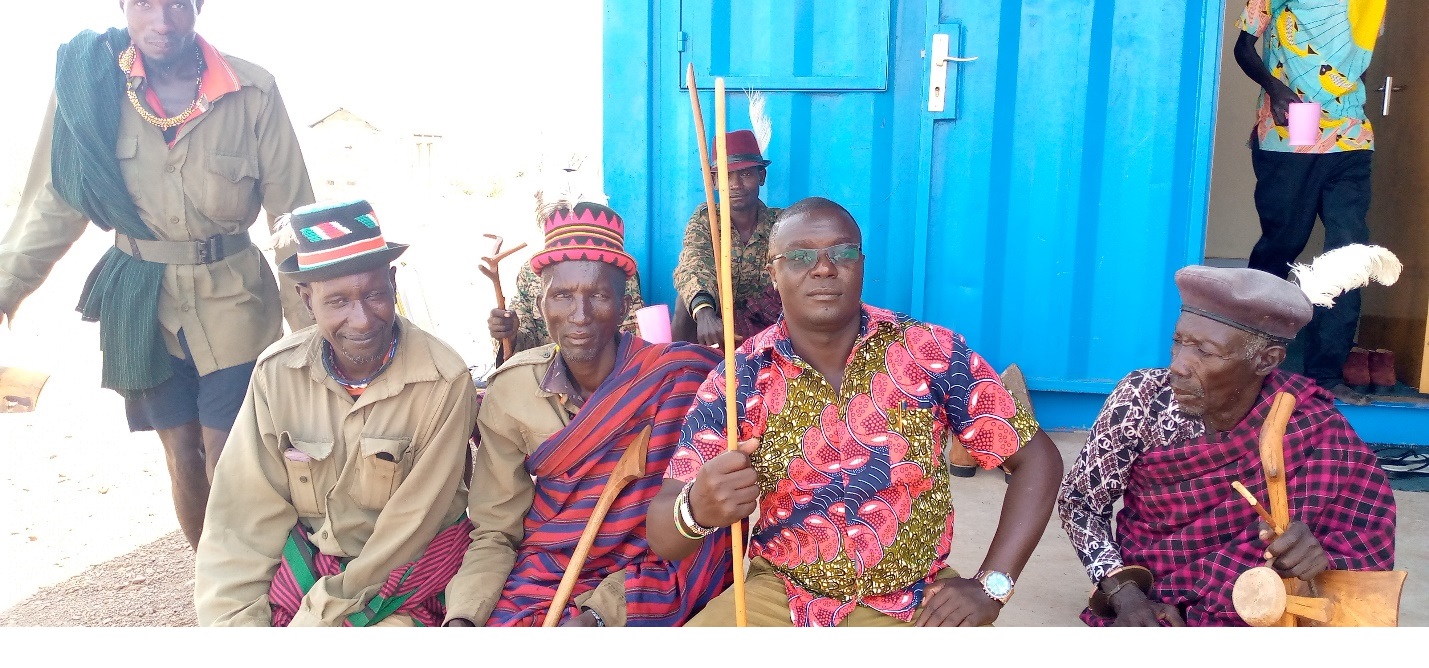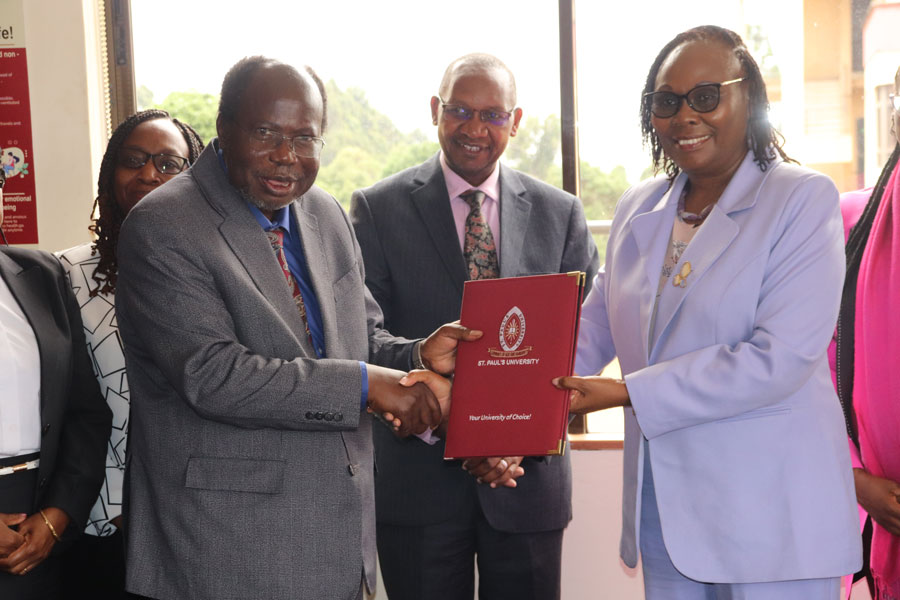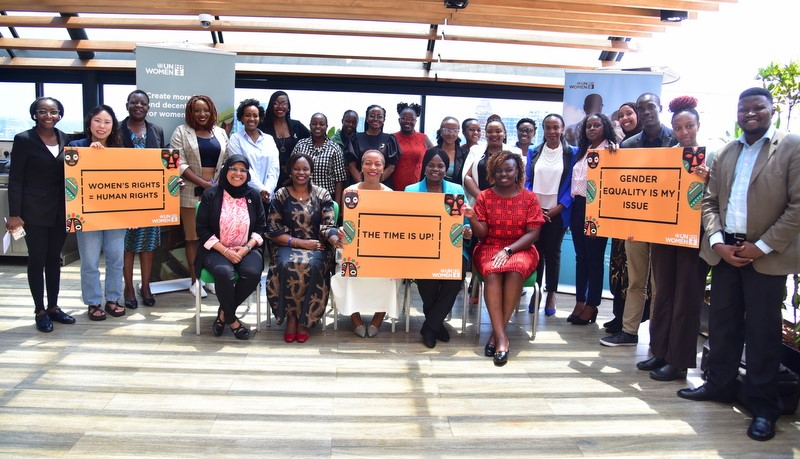
As the world marked the fourth United Nation’s International Equal Pay Day on September 18th, latest statistics from the UN Women indicate that globally women are still being paid less than men with the global gender pay gap standing 20 % despite the push for equality over the years further contributing to women’s poverty.
Speaking to the media in a Nairobi hotel during the launch of Why do Women Earn Less Report covering East and Southern Africa regions. Mehjabeen Alarakhia the UN Women’s Regional Policy Specialist Women’s Economic Empowerment, reported that data from their recent surveys across the Eastern and Southern Africa regions indicate that although there was an increase in the participation of women in the labour force at 66 % surpassing the global rate of 53 % recorded in 2021, women still earn about 81 cents for every 1 dollar earned by men on an hourly basis. In other words, women only earn 92 cents less for every dollar that men earn per hour.
While on monthly basis women still earn 68 cents for every dollar that men earn. In other words, the raw monthly gender pay gap stand at 28 % compared to the raw hourly pay gap that stands at 19 % in the Eastern and Southern Africa Regions. This difference can be attributed to the fact that women work for fewer hours for pay every week. They spend 43 hours per week in paid jobs as compared to men who spend 46 hours. Women’s disproportionate unpaid care work responsibilities as compared to men; limit the time they can spend on paid jobs
“ You know women we have a lot of work, aside from work we have work we have unpaid care responsibilities. You have got children, you have got the elderly, you have got laundry dishes.. and you also have to take care of your social responsibilities so because of that we found out that women work for four hours and twelve minutes less per week than men. So they are getting paid less per hour and they are working less per hour.” Explained Alarakhia
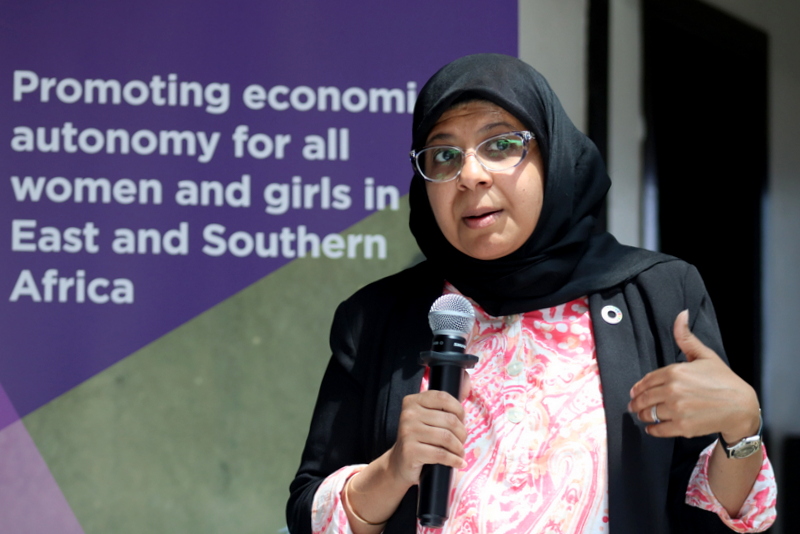
On the academic front, women with collage degrees face a smaller gender pay gap than women with primary school education translating to 18 % less for those with collage degrees while those with primary school education earn 31% less than men with the same level of education.
Most importantly there is a striking sectoral and occupational segregation with women being over represented in lowest sectoral and occupational categories with low pay and low status. What can also be described as feminized sectors i.e. care sectors, domestic work, education, health, and social services. These sectors are undervalued and the gender pay gap is wide. Women are paid 25% lower in domestic work, 25% lower in education and 6.7 % lower in health and social work as compared to men.
Marriage also affects the labour force because women drop out of the labour market or work for shorter hours after marriage. Thus married women’s employment rate is 23% lower than married men while single women’s employment rate is only 3 % lower than single men. Surprisingly the gender pay gap becomes smaller after marriage. This can be attributed to the fact that women with better skills and qualifications tend to keep working after marriage. In most countries in the region, the metaphoric “glass ceiling” prevents a lot of women from reaching the highest paying jobs. Only 26 out of 1,000 working women have high status managerial jobs while 33 out 1,000 working men have the same jobs.
Anna Mutavati, UN Women Kenya Country Representative stated there needs to be combined efforts from all stake holders to work together towards reducing gender inequality. Key being creating a global awareness and empowering women to negotiate for a better and equal pay as their male counterparts.
“We can look at it from multiple ways including legislation, so that it’s really computed into law so that this kind of practices will be unlawful. So that if you are found that you are perpetuating gender inequality through unequal pay for equal work that is being done then you will be penalized.” Stated Mutavati
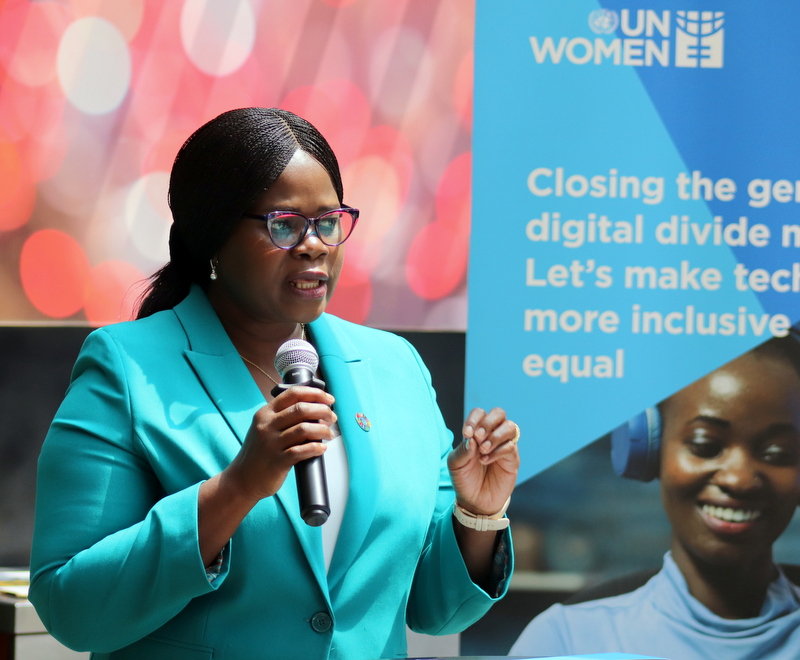
The researchers of the gender pay gap report based the research using Oaxaca- Blinder decomposition method that allowed them to break down the gender pay gap into two parts. The first part captures the differences in the types of jobs and personal characteristics of men and women. The second part remains unexplained even after considering these differences.
Read Related article…..
https://twr.co.ke/un-women-kenya-marginalized-women-face-double-challenges-in-politics-economic-exclusion-as-iebc-lobbies-for-parity/

